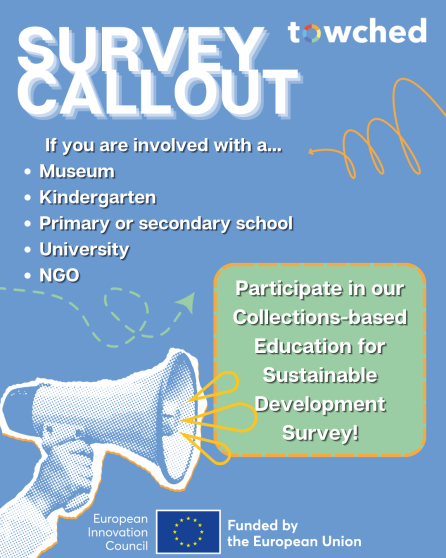ICCROM is proud to be part of an international consortium focused on strengthening the role and recognition of heritage collections in the European educational framework. This initiative aims to demonstrate the potential of arts and cultural heritage in shaping the education of children and youth, with the Sustainable Development Goals (SDGs) at its core. By integrating these elements, the project seeks to foster creativity, critical thinking, and sustainable practices in the next generation, empowering them to contribute to a better future for all.
TOWCHED (Transforming Our World: Collections at the Heart of Life-long Learning and Education) is an EU-funded project that leverages arts and cultural heritage collections across European museums to educate children and youth about sustainable development. Coordinated by the University of Valencia, the project promotes Education for Sustainable Development (ESD), which emphasizes lifelong learning through social engagement and community participation. TOWCHED seeks to empower individuals with the knowledge, skills, and values necessary to create a sustainable future, fostering critical thinking, collaboration, and responsible decision-making. The initiative actively engages various stakeholders, including educators, policymakers, creatives, and heritage professionals, to ensure a broad and lasting impact on European education.
To support the project’s goals, we invite European educational and cultural institutions to participate in an online survey aimed at gathering insights on how museum collections across the region are currently used in educational activities related to sustainable development. The survey will help us understand the current state of museum-based educational programmes, experiences in collaboration, and the effectiveness of these activities in fostering sustainability. Your input will directly inform future initiatives, shape the development of resources, and foster greater collaboration among institutions for lifelong learning.
We encourage you to take ten minutes to participate in the survey and to share this opportunity with other institutions such as museums, schools, universities, and NGOs. In addition to completing the survey, we invite you to engage with other activities, including training sessions, pilots, and opportunities to contribute to our developing repository

